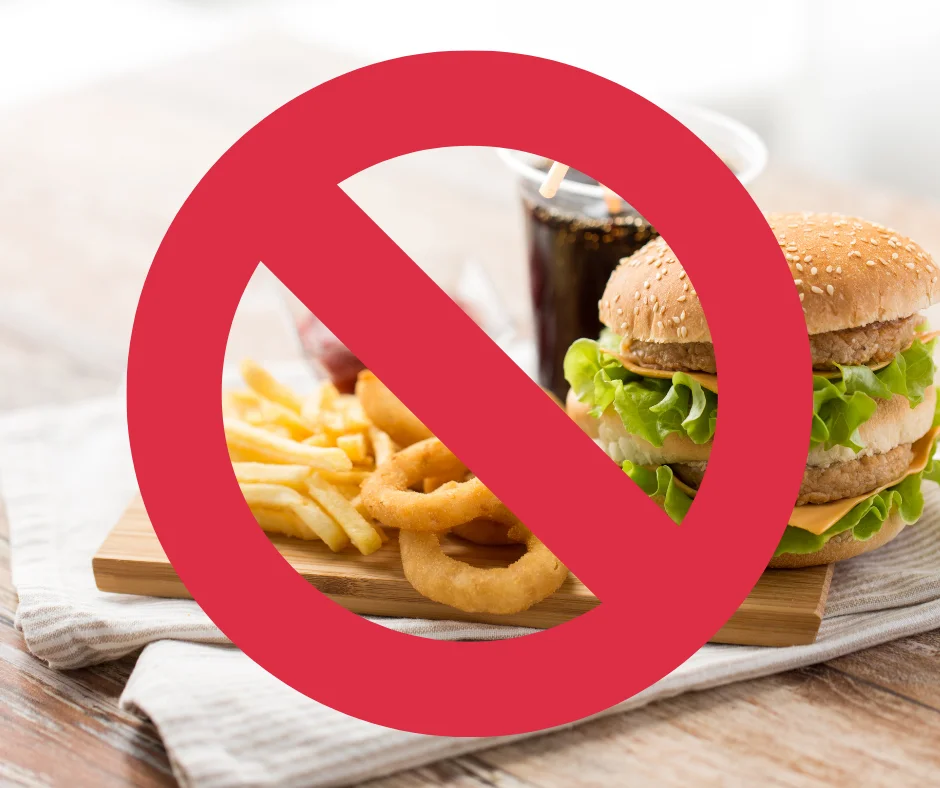Well-being is really important to achieving your goals in life, which for us at Compass for Life is your Super North Star. Well-being is subjective and unique to everyone. But when you are looking after your well-being it helps you to overcome the difficulties and bumps in the road that we encounter along the way to achieving our Super North Star. For example, setbacks are much easier to cope with when we have great well-being because we can bounce back and move forward much quicker.
In this blog we will look at what well-being actually is, why it is important and will share some top tips for how you can improve your well-being.
What is well-being?

At Compass for Life we use the cardinals of the compass to shape your journey:
- Super North Star being your goal and dream
- East is your ethos and comprises of your values which are the heart and soul of who you are
- South is the strategy you use to take you on your journey to the Super North Star
- West is your warrior. Your warrior is your mental and physical resilience and strength, your willingness to fight for what you believe in
Developing your overall well-being is key to unlocking your warrior spirit. Being physically and mentally strong is what will set you apart from others.
Let’s start with clarifying a few definitions, as we tend to use different terms and words interchangeably. When we talk about mental or physical health, we might also refer to our mental and/or physical well-being. Sometimes we write “wellbeing” and another time “well-being”. What a minefield hey! So, let’s look at the exact definitions so that you can move on with improving your well-being.
Health – generally refers to a state of complete physical, mental and social well-being. Not merely the absence of disease.
Well-being – is the state of being comfortable, healthy and happy, plus the feeling of satisfaction with where you are in your life.
Mental Health – is a state of well-being in which everyone realises their potential, can cope with the normal stresses of life, can work productively and fruitfully and is able to contribute to their community. We all have mental health like we do physical health.
Mental well-being – is a wider set of feelings and thoughts that influence our emotions and day-to-day behaviour.
Therefore, good mental well-being can strengthen your resilience against developing a mental health problem or to cope with an existing one.
When it comes to the physical side, the definition used to be very health based and was simply defined as the absence of disease or illness. However, in recent years this has been modernised and the World Health Organisation (WHO) has expanded its definition of health beyond sickness and disease and now defines physical health in the sense of the overall well-being of a person physically, mentally and socially. It includes taking care of your body and recognising that your daily habits and behaviours have a significant impact on your overall health, well-being and quality of life.
Often physical well-being and mental well-being have been looked at separately, but they link seamlessly together. So it is really important that our top tips are things you can easily include in your daily routine that will improve both your mental and physical well-being. For example, if your physical health declines with the presence of a disease this can lead to a decline in your social and therefore, mental well-being. Similarly, in the presence of poor overall mental health your risk of developing chronic physical conditions increases.
Why improve your well-being?

When you have good all-round well-being (mental and physical) it helps you get through whatever comes your way on a day-to-day basis. This includes those things you knew that were going to happen, but also things you didn’t and which are out of your control, like a pandemic for example!
Remember two or so years ago when Covid-19 appeared, suddenly everyone was working from home, children were being home schooled, no one could visit each other and we were allowed outside only once a day. These things were all out of our control. Now think back to how you coped with it. Would you say at that time you were in a good state of well-being? Did it make it easier or harder to deal with the uncertainty of the life at that time?
Well-being is holistic and therefore, we need to look after all aspects of our lives if we want to increase our well-being. The below top tips are all easy things that you can incorporate into your day. They won’t cost you money or take up lots of time. Instead, they are simple tweaks to your existing daily routine. So why not give a few a go and see how they improve your overall well-being.
Top tips for improving your well-being
Top Tip 1 – Stay hydrated

Hydration is so important to your overall well-being, so important that I am even going to give you 2 top tips!
The brain is nourished by the food that we eat and the water that we absorb. Did you know that even when you are mildly dehydrated your brain shrinks a little bit? This has an impact on both our mental and physical well-being.
Try out these two simple things to improve your hydration:
Hydrate before you caffeinate – When we wake up in the morning, we are naturally dehydrated from being asleep. Caffeine is a diuretic which means that it makes us pee more! So, start your day off with a lovely glass of water to start your hydration. You could try hot water with a slice of lemon and even sprinkle a little bit of salt in it. I am talking about sea or Himalayan salt here NOT TABLE SALT. A good quality salt will help you to absorb the rest of your hydration throughout the day better.
Eat your hydration – recent studies have shown that a glass of water and an apple is more hydrating than 2 glasses of water. This is because the apple is full of water but also fibre which again will help you to absorb your water better. So, try to include as many plants in your diet as so many of these are full of water, think about cucumbers, lettuce and leafy greens. To make it easy you could whizz up a smoothie to get these all in each day.
To find out more about hydration have a listen to this short podcast.
Top Tip 2 – Get enough sleep

If you are dehydrated when you go to bed, this is going to disrupt your sleep which is why hydration comes first. You don’t want to be waking up thirsty in the night. Sleep is the golden thread when it comes to our overall well-being. Think about how you feel when you wake up after a great night’s sleep compared to a not so great one. A poor night’s sleep leads to lower patience, motivation and risks dodgy decision making, whereas a great night’s sleep gets us jumping out of bed motivated for the day.
Daylight is your key to getting a great night’s sleep – Get outside to absorb natural light as close to sunrise as you can. This is key to improving both your mood and sleep the following evening. This is because it is linked to your internal circadian rhythm which is externally influenced by daylight and darkness.
If you don’t have time to get out for a little walk in the morning then try opening the back door when you get up and take 5 mins to fill yourself with the natural daylight (even if its cloudy the natural light is better than artificial from inside your house). You could even sip on your hot water and lemon to keep your hands warm!
To find out more about the importance of prioritising and not compromising your sleep have a listen to this podcast.
Top Tip 3 – Move more

Moving our bodies more will help you to move your hydration around your body to the parts that need it because, remember, our toes and fingers need hydrating as well. Movement will also help you to drop off to sleep quicker and get you more of the lovely restorative deep sleep which is so important for your physical well-being.
Society has become a quite sedentary with many of us sitting at computers all day and with the natural busyness of people’s day we are lured into using the car far more than we used to.
Walking is your superpower – walk everywhere you can. It’s free and easily accessible (unless you live on the side of a motorway!). Given the current fuel prices, walking will also save you some money.
- Try leaving 10 minutes earlier in the morning and walk to work or to the school drop off.
- Park further away if you must take the car, get off the bus or tube a stop or two earlier.
- Walk and talk for meetings, whether in person or on the phone
Just get moving!
The best thing about walking is that when we are outside and in nature it naturally lowers our levels of depression and anxiety. This improves the release of our feel-good hormones like endorphins (our natural pain killer) and serotonin (our mood stabiliser).
It’s National Gardening Week from May 2nd so why not get in your garden and get moving too? My garden is about the size of a postage stamp but that doesn’t stop me getting outside and pulling up the weeds and planting something new. Mint is my thing for 2022, great to drop a few leaves in some hot water for a nice refreshing drink. Or you can chop up the leaves and put them in the ice cube tray with water for refreshing ice cubes!
Here is a podcast all about why walking is your superpower.
Top Tip 4 – Cut out the processed food

Did you know that 7 out of every 10 foods that touch your mouth are altered with chemical ingredients? A processed food is anything that has things added to it: think SOS salt, oil and sugar. Anything without packaging and a list of ingredients is natural.
There’s a reason you can’t stop eating processed foods, it is because they’re designed to keep you coming back. Processed foods stimulate dopamine which is our reward hormone. It has a feel-good factor that lights up your brain in a similar ways to drugs. Food companies know this and they actually engineer their products to have this effect. The effect of dopamine can be so strong it can drive your behaviours.
Eat natural – start slowly by getting some easy cook books, I love a range called ‘The Roasting Tin’, or ‘Deliciously Ella’ app or books. For example, how about making your own pasta sauces? A tin of tomatoes and some herbs are much more natural than a jar of a pre-made sauce which can contain up to 12g of sugar a portion which is nearly 3tsp of added sugar we just don’t need.
Sugar that is added to processed foods is much more harmful to your health than the natural sugar that you will find in whole foods like fruits and vegetables.
Top Tip 5 – Have a daily holiday

Don’t wait until your actual holiday to have a total chill out! Have one daily. By this I mean factor some ‘Me Time’ into every single day. Remember, selfishness is actually self-care!
Put your oxygen mask on first – don’t feel guilty about walking the long way home, switching off your phone or sitting in the sun enjoying the birds singing and a nice cuppa. You deserve your time as much as everyone else in your life because your part is as valuable as everyone else’s. By putting the oxygen mask on yourself first you can be the best version of you for everyone else around you.
Listen to this great podcast on how to destress your life.
When it comes to developing our Warrior cardinal, it really is all about doing small things consistently in all areas of our well-being that will have the biggest impact. Rather than putting all our eggs in one basket and only focussing for example on our fitness or what we are eating. A good and honest reflection of your holistic health is a good way to get started on making some of the small daily changes outlined above.
What do you do to look after your well-being? Let us know in the comments or on social media.
Learn more about the Warrior cardinal here: https://compassforlife.co.uk/philosophy/
